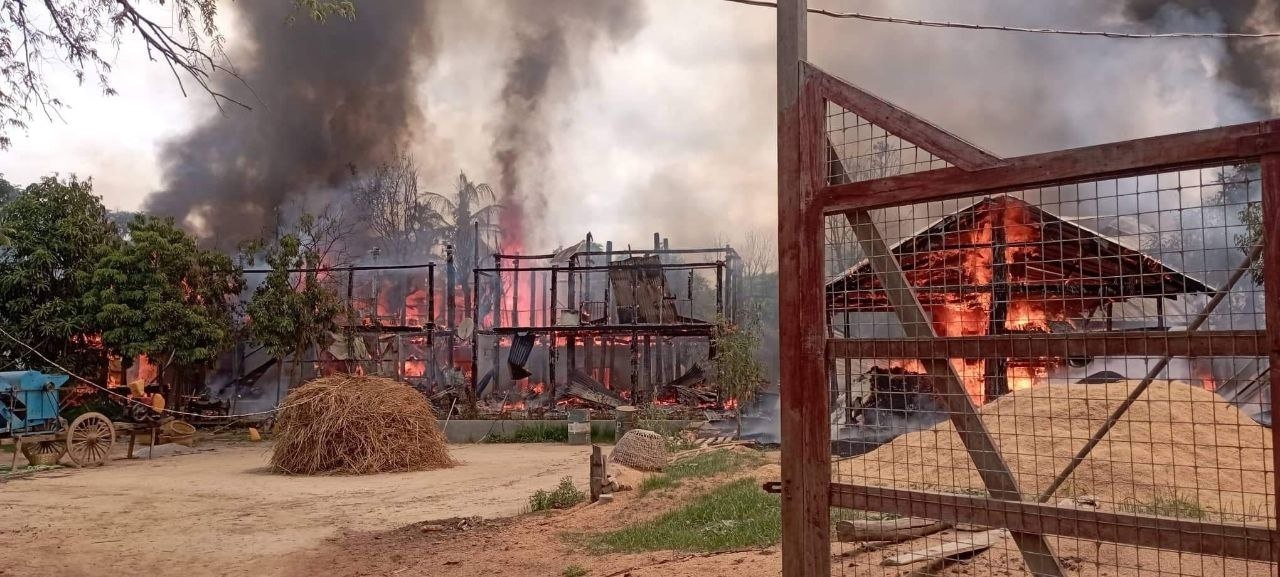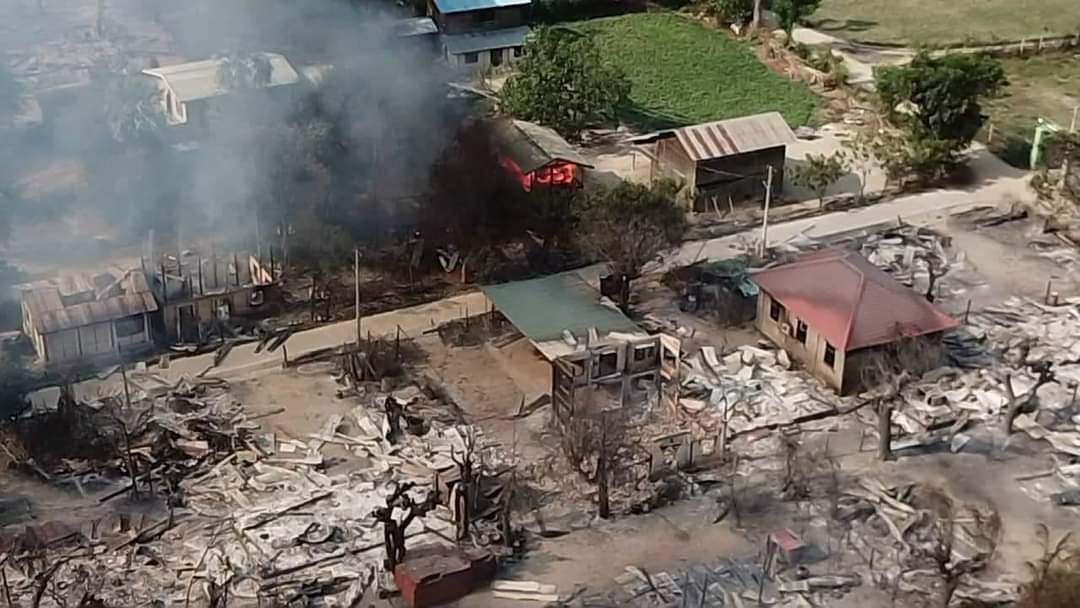BANGKOK—US State Department Counselor Derek Chollet called Myanmar’s military “a bunch of thugs” suffering “serious losses” in their fight against their own people, who have been resisting military rule in the country.
The comment comes as the junta struggles to control the country, which has been gripped by an unwavering popular armed resistance against the regime following the military takeover in February last year.
Given the ongoing circumstances in Myanmar, Chollet said the regime was finding itself increasingly isolated, not just internationally but at home.
“They’re not winning. They’re losing territory. Their military is taking serious losses,” he told The Irrawaddy in a recent interview.
Last week, US State Department Counselor Derek Chollet visited Thailand where he also met with senior Thai officials in Bangkok.
He later visited the Thailand-Myanmar border and his delegation visited the Mae La Refugee Camp in Tak Province and then toured the Mae Tao Clinic, which has provided a health lifeline for Myanmar refugees in Mae Sot and surrounding areas for decades.

After returning from the border, Chollet told The Irrawaddy that Washington’s message to the regime was simple: End the fighting and return to the path of democracy.
He said the regime was trying to create a new reality after its military proxy party lost the 2020 election.
“But it’s quite clear that what we’ve seen inside Burma is that the people are not going to accept that,” he said, using Myanmar’s former name.
When asked about his impression of the regime’s extrajudicial killings of civilians, arbitrary arrests and torching villages in central Myanmar in response to armed resistance there, Chollet said they were not things a model military does.
“They are not acting as a professional military. They are acting like a bunch of thugs,” he said.
As of May 26, more than 1 million people had been displaced in Myanmar, with more than half of them losing their homes since the Feb. 1, 2021 military coup, and 12,700 houses, religious buildings and schools had been destroyed, according to the UN.
Engaging with the NUG
The US recently increased its diplomatic engagement with Myanmar’s opposition and like-minded countries in the region to pressure the regime in Naypyitaw. “We are working [to] give the opposition our best advice” as well as to “address urgent humanitarian needs,” Chollet said, noting that at least tens of thousands of people have been displaced by the regime’s raids and fighting.
Last month, Daw Zin Mar Aung, foreign minister of Myanmar’s shadow National Unity Government (NUG), met with Wendy Sherman, US deputy secretary of state, in Washington on the sidelines of the US-ASEAN summit. Myanmar regime leader Senior General Min Aung Hlaing was not invited to the summit.
Chollet told The Irrawaddy the US will continue to engage with the NUG on capacity building and supporting the Myanmar democratic movement. The shadow government is now trying to establish its administration and education system in some resistance stronghold areas in the country.
“It’s a huge challenge where there’s expectations placed upon you from people inside and how you learn about just the basic tasks of administration and keeping the trains running, schools opened and electricity. A lot of that knowledge has left. So, in areas outside of regime control, how can you maintain these services? There is capacity building that we can provide,” he said.
Chollet said Myanmar people have shown tremendous resilience, courage, and bravery throughout their fight against the regime, adding that their suffering over the last 18 months has been horrendous.
“What’s striking, however, is you still see so much hope and optimism in the fight for their country—whether they’re in Burma, or whether they’ve left and they’re trying to help on the outside,” referring to the determination of the majority of Myanmar people that their cause against the regime must prevail, and their effort to support it by all means.
Working with ASEAN, talking to others
Since the coup, ASEAN leaders have faced challenges and criticism, as the regional grouping is known to lack political capital in solving the decades-old crisis in Myanmar. There has also been strong criticism of ASEAN’s peace plan for Myanmar. So far regime chief Min Aung Hlaing has failed to honor most of the points in the plan. Myanmar opposition and rights groups have criticized it as a failure but also expressed concern that the US and Western governments are outsourcing the issue to ASEAN and hiding behind the bloc.
Chollet countered the criticism, saying that ASEAN is “taking steps that I think few predicted,” referring to the bloc’s exclusion of the junta leadership from its summits due to Min Aung Hlaing’s failure to implement the peace plan.

“There was doubt they would agree to the decision to disinvite political representation by the regime in high-level meetings and then stick to that position. It’s not easy to get to that point. It sounds a little self-serving, but I do think the US advocacy with the ASEAN partners to first make the decision to not invite Burma to a high-level meeting and stick to that decision matters. In individual ASEAN states, in Singapore, Indonesia, Malaysia—they are quite helpful and active.”
He also said that the US is working with ASEAN and had also been very active in talking to the UK, Australia, the EU, Japan and Korea about ways to work together to help people inside Myanmar.
“It’s incumbent upon us to do whatever we can to support this,” he said.
On China
Chollet also commented on Myanmar’s powerful neighbor China, which has been supporting the regime.
In April, Chinese Foreign Minister Wang Yi told his Myanmar counterpart Wunna Maung Lwin that China will support Myanmar’s military government “no matter how the situation changes” in the country.
Chollet said he thought China had been pretty quiet on this front recently, adding that the US interest in Myanmar was not just about China.
He said he was not aware that China had worked in any way to try to push back on ASEAN, while admitting that China had a complicated relationship with the junta.
“And, you know, I would say we don’t want them [China] to be part of the problem. We hope that they can be part of the solution.”
You may also like these stories:
Regime Airstrike Destroys Hospital in Lower Myanmar
Junta Chief to Preside Over Myanmar’s First Grand Military Review in Seven Years
Resistance Fighters and KIA Clash With Junta Forces in Northern Myanmar

















